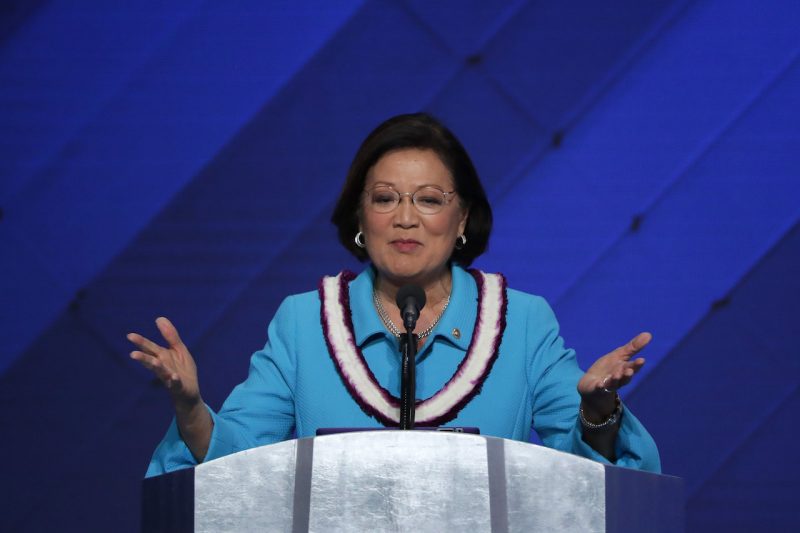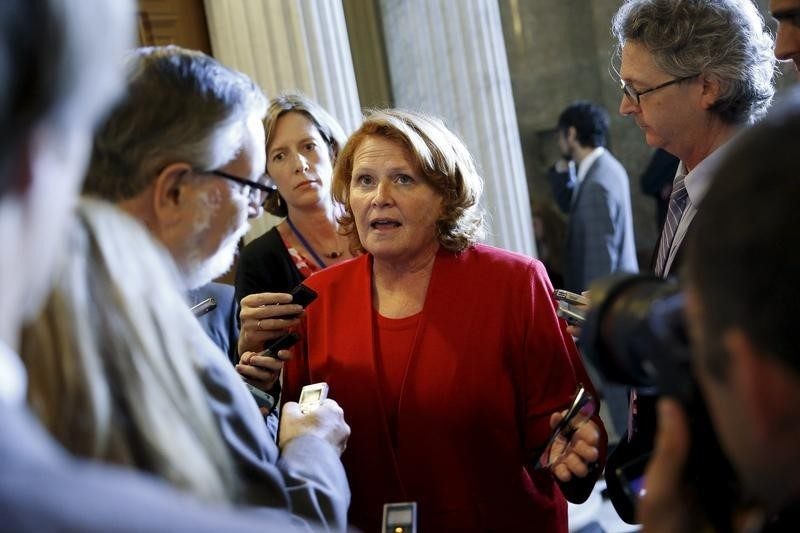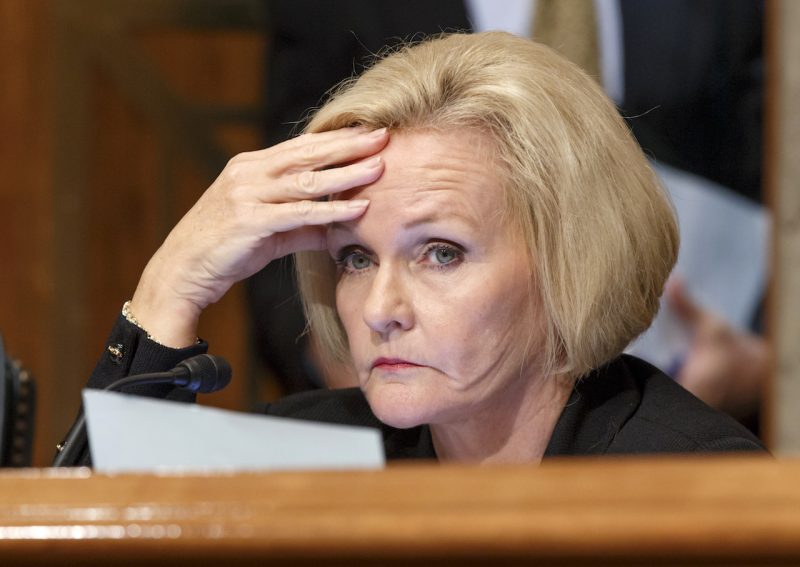- Four Democratic senators are speaking out about their own experiences being sexually harassed. They opened up as part of the #MeToo campaign that picked up steam in the wake of the Harvey Weinstein scandal. They emphasized that for things to change, there needs to be a cultural shift from teaching women to avoid sexual assault, to teaching men not to behave inappropriately towards women.
Four female senators spoke out about their own past experiences involving sexual harassment after over three dozen women accused Hollywood mogul Harvey Weinstein of varying degrees of sexual misconduct.
NBC’s “Meet The Press” reached out to all 21 female members of the US Senate and asked if they wanted to share stories of sexual harassment as part of the #MeToo campaign that picked up steam following the Weinstein scandal.
Four women – Democratic Sens. Elizabeth Warren, Claire McCaskill, Mazie Hirono, and Heidi Heitkamp – came forward and recounted their experiences.
Warren, a Massachusetts senator known for her progressive ideology, recalled being harassed by a senior faculty member when she had just started out as a law professor. The colleague, Warren said, often made inappropriate jokes and commented on her appearance, and one day invited her to his office.
Once she got to his office, Warren said, "he slammed the door and lunged for me. It's like a bad cartoon. He's chasing me around the desk trying to get his hands on me."
"And I kept saying, 'You don't want to do this. You don't want to do this. I have little children at home, please don't do this,'" she recalled. Eventually, she was able to reach the door and get out before things progressed, and she went back to her office.
"I just sat and shook and thought, what had I done to bring this on?" Warren told NBC. "And I told my best friend about it. Never said a word to anyone else, but for a long time, I wore a lot of brown."

Hirono, who represents Hawaii, recalled having been propositioned by teachers, by colleagues, and several others. She observed that sexual harassment and other "unwanted attention" occurs when there is "uneven power, and it's usually the woman who has less power."
McCaskill, a senator from Missouri, was harassed while working as a state legislator in her 20s. She said she approached the "very powerful speaker of the Missouri House of Representatives" when she was nervous about getting her first bill out of committee. She recalled asking him whether he had any advice for her on how she could move the legislation forward.
"And he looked at me and he paused and he said, 'Well, did you bring your knee pads?'" McCaskill told NBC. "I do think he was joking, but it was shocking that he would make that joke to a colleague, even a very young colleague."
Heitkamp, of North Dakota, recounted speaking at an event focusing on curbing domestic violence when she was the state's attorney general. At the event, Heitkamp said, a law enforcement officer approached her, "and he pretty much put his finger in my face, and he said, 'Listen here, men will always beat their wives, and you can't stop them.'"
She told NBC that she was "stunned" and replied to the official, "You know, you might be right. I hope you're not right, but we shouldn't live in a world where we don't try."

#MeToo
The four senators spoke out about their experiences after activist Tarana Burke revived the #MeToo campaign, which she originally launched more than a decade ago, following the bombshell allegations against Weinstein. Scores of men and women tweeted out the hashtag to indicate that they, too, had been harassed in the past.
The campaign drew support from several prominent figures, many of whom have previously opened up about their experiences with sexual harassment and assault, like Lady Gaga and actresses Evan Rachel Wood and Gabrielle Union. People like Alyssa Milano, Debra Messing, Olympic gymnast McKayla Maroney, America Ferrera, and Bjork spoke out as well.
Weinstein was fired from the Weinstein Company, which he co-founded, after the allegations against him became public. The British Academy of Film and Television Arts also suspended Weinstein's membership, releasing a statement that called his alleged behavior "completely unacceptable and incompatible with BAFTA's values."
Last week, the Academy of Motion Picture Arts and Sciences voted to oust him from its ranks.
Heitkamp said it was sad that it took something as "horrific" as the Weinstein scandal to "make people feel strong enough to actually speak up."
"The voices of all these women are so much stronger and louder together," she added.
McCaskill said she wasn't surprised by the allegations, given her own past experiences, and that she understood why victims of sexual assault and harassment keep their experiences to themselves.

Moving forward, Heitkamp said, it's imperative that families work to implement cultural change so that the focus is on teaching men not to behave inappropriately, instead of teaching women how to guard against sexual assault.
"We have to achieve something within our families and within our children," Heitkamp said. "It's not acceptable, if you're raising daughters, to say, 'Look, you may not think it's ever going to happen to you. In all likelihood, it will.'"
Instead, she added, "we should be raising sons to say, 'I will never do this. I will behave differently.'"
Hirono told NBC that men should know that suggestive comments and lewd behavior is "not cute, it's not fun."
McCaskill emphasized that women who are victims of campus sexual assault should not wonder whether they had done something to provoke the attack.
Things like how much a woman has had to drink, who she was with, and whether she should have gone to a party "does not excuse criminal conduct," McCaskill said. "You don't have to have perfect judgment to be a victim of a crime."
Watch all of their interviews below:

